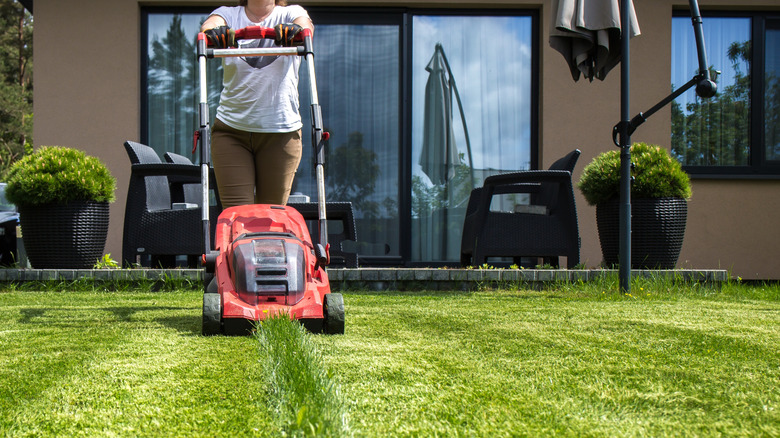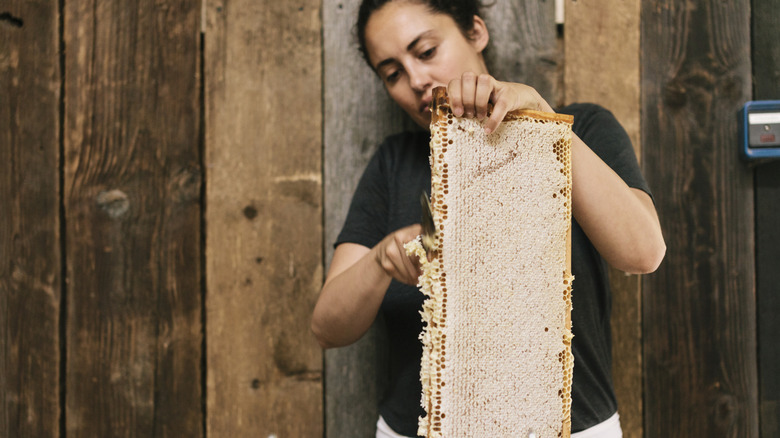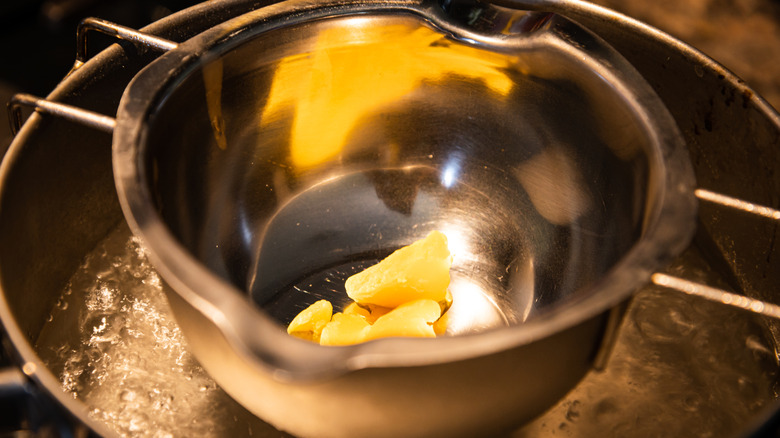Preventing Lawn Mower Rust With Homemade Natural Coatings
No matter how well you care for your lawn mower, rust always seems to creep in. You wipe the blade down, store it out of the rain, maybe even use a rust spray, and still, after a few weeks or a long winter, that dull rough layer shows up again. You've probably searched for genius hacks to remove rust from your garden tools just to keep your mower and shears in working shape. But the real issue isn't just exposure to moisture.
The problem is that most rust preventatives often don't last, and many have chemicals you'd rather not use on tools that touch your grass, soil, or skin. But there's a better and a longer-lasting fix: a natural beeswax-and-oil coating that protects metal without the downsides of synthetic sprays. It forms a moisture-repelling barrier that's safe, easy to apply, and surprisingly effective at keeping your lawn mower, and other garden tools, rust-free season after season.
How beeswax and oils protect metal naturally
Beeswax forms a thin, protective layer over the surface, which blocks out moisture and oxygen, the two main things that cause metal to rust. This waxy layer is water-repellent, so it stops moisture from settling on the surface in the first place. It also smooths out the metal by filling in tiny pores and imperfections, which helps reduce oxidation even further. Natural oils work in a slightly different but equally useful way. Linseed and olive oil create a thin, hydrophobic film on the metal. This film keeps moisture from reaching the surface, which is important for preventing rust.
The fatty acids in these oils also bond to the metal, filling pores and forming a protective layer that slightly lubricates the layer even more and limits exposure to air and water. Another big plus is their eco-friendly nature, making this a sustainable home hack. Beeswax and plant-based oils are safe, biodegradable, and non-toxic. So, you're protecting your lawn mower, or garden shears, and also avoiding the health and environmental risks that come with synthetic chemicals. Beeswax even contains natural antimicrobial and antioxidant compounds, which can help extend the life of your tools and equipment, especially parts like handles that are used a lot.
Making the rust-proof coating your mower needs
The first step is to combine 1 part beeswax with 1 part oil. You can use food-safe mineral oil, olive oil, or even linseed oil, but mineral oil is generally the best option. It doesn't go rancid over time and has a much longer shelf life, making it more reliable for repeated use. To speed up the melting process, grate or chop the beeswax into small pieces. Heat the wax and oil mixture gently using indirect heat — never place it directly over a flame. A safe and effective method is to put the ingredients in a mason jar, then set the jar into a pot of simmering water. Once the wax is fully melted, stir the mixture thoroughly to combine.
While your coating is still warm, turn your attention to the lawn mower blade. Clean off any dirt, grass clippings, or debris. Then, scrub away any existing rust using steel wool, a wire brush, or an abrasive pad. Keep scrubbing until clean metal is exposed. Wipe the blade with mineral spirits or isopropyl alcohol to remove oils to make sure that the wax adheres properly. If you ever mow over wet grass, this coating will act as a barrier, preventing moisture from clinging to the blade and causing rust (just keep in mind that mowing over wet grass generally isn't advisable). While the wax is still warm, apply a thin, even layer by brushing it on or rubbing it in by hand. For the best results, warm the blade slightly using sunlight or a heat gun. Let the coating cool for a few minutes, then buff it with a soft cloth to remove any excess and leave a light shine.


